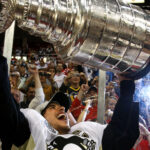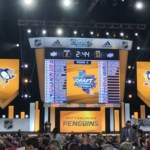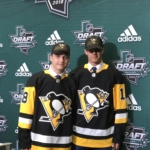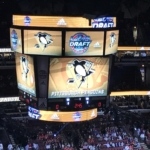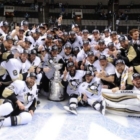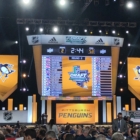Have you ever heard of the Stanley Cup hangover? If not, you will at some point during the first two months of the 2016-17 season.
It is an often-used idiom that comes up every hockey season when the defending Stanley Cup champion doesn’t win every game it plays in the beginning months of the season.
It might happen after the team comes back from a bad road trip. It might happen as the champs start to deal with injuries that are sure to pop up. Talk of the short summer and how the players didn’t have enough time to focus on their off-season routines due to the increased workload that comes with a long and successful playoff run will come up.
All of that chatter got me thinking, and with the World Cup of Hockey’s exhibition games already starting and NHL training camps not too far ahead, it seemed like a good time to discuss the Stanley Cup hangover.
Is it real? Is it an excuse? Is it complete and utter nonsense?
The only way to get to the bottom of this is to research the phenomena and see what Cup winners have done in recent years. It didn’t seem logical to go all the way back to the beginning since the NHL of today is far different than even 20 years ago. That is especially so due to the fact that the salary cap keeps teams from bringing back the same team year-after-year.
Only five defending Stanley Cup champions in the expansion era (post-1966) have gone on to miss the playoffs the following season: the Toronto Maple Leafs (1967), Montreal Canadiens (1969), New Jersey Devils (1995), Carolina Hurricanes (2006) and most recently the Los Angeles Kings (2012).
The last team to repeat was the Detroit Red Wings, who did it in 1997 and 1998.
For this study, I looked back to the 2006 Stanley Cup winning Hurricanes. It was the first year of the Salary Cap Era and it followed the lockout-canceled season of 2004-05.
Of the 11 Cup winners since, just two have failed to make the playoffs, but how did the others fare after a summer of celebrating? Playoff berths are often earned with the wins secured during the league’s first two months of action, so the records shared will be those accumulated in October and November.
The Chicago Blackhawks kicked off 2013-14 with a 20-4-4 record, including a 12-2-1 record in November. They won their first two playoff rounds before falling in seven games to the Kings in the Western Conference Final.
The 2008 Red Wings began their title defense by started 15-4-4. As you probably remember, the Penguins dispatched them in the Stanley Cup Final rematch that summer in seven games.
How did that Penguins team do in the season after its Stanley Cup win? Not all that bad. They started with a 19-9-0 record and got into the playoffs as a four seed. Unfortunately they were knocked out by the Canadiens in seven games.
Of the five remaining teams on the list, all were an average of 4.6 games above .500 entering December, with the 2011-12 Boston Bruins and 2012-13 Kings skewing that average upward by being six and five games over, respectively.
The 2007-08 Anaheim Ducks were the worst in the first two months of their defense, entering December with a 12-11-4 record. They would go on to earn a four seed in the playoffs that season before falling in the first round to the Dallas Stars in six games.
Of the nine defending champions that made the playoffs following their championship runs, all did so comfortably, aside from the 2010-11 Blackhawks. They squeaked in as an eight seed before being knocked out in the first round against the Vancouver Canucks.
So, does the Stanley Cup hangover exist? Figuring it out doesn’t seem to be an exact science, but teams like the Blackhawks, who have averaged 14.2 playoff games per season since 2010 — including three Stanley Cup wins — dispel the myth a bit.
The secret seems to have been keeping the same players together and healthy for a long stretch of time.
That’s the one piece of evidence that points to the 2016 Penguins avoiding any hangover this season. Their script has yet to be written, but they have all but one player who was on the ice from the Cup Final returning.
Having that continuity on the roster, coach Mike Sullivan having a full training camp and knowing what it takes to win, they seem poised to have a hangover-free season.

